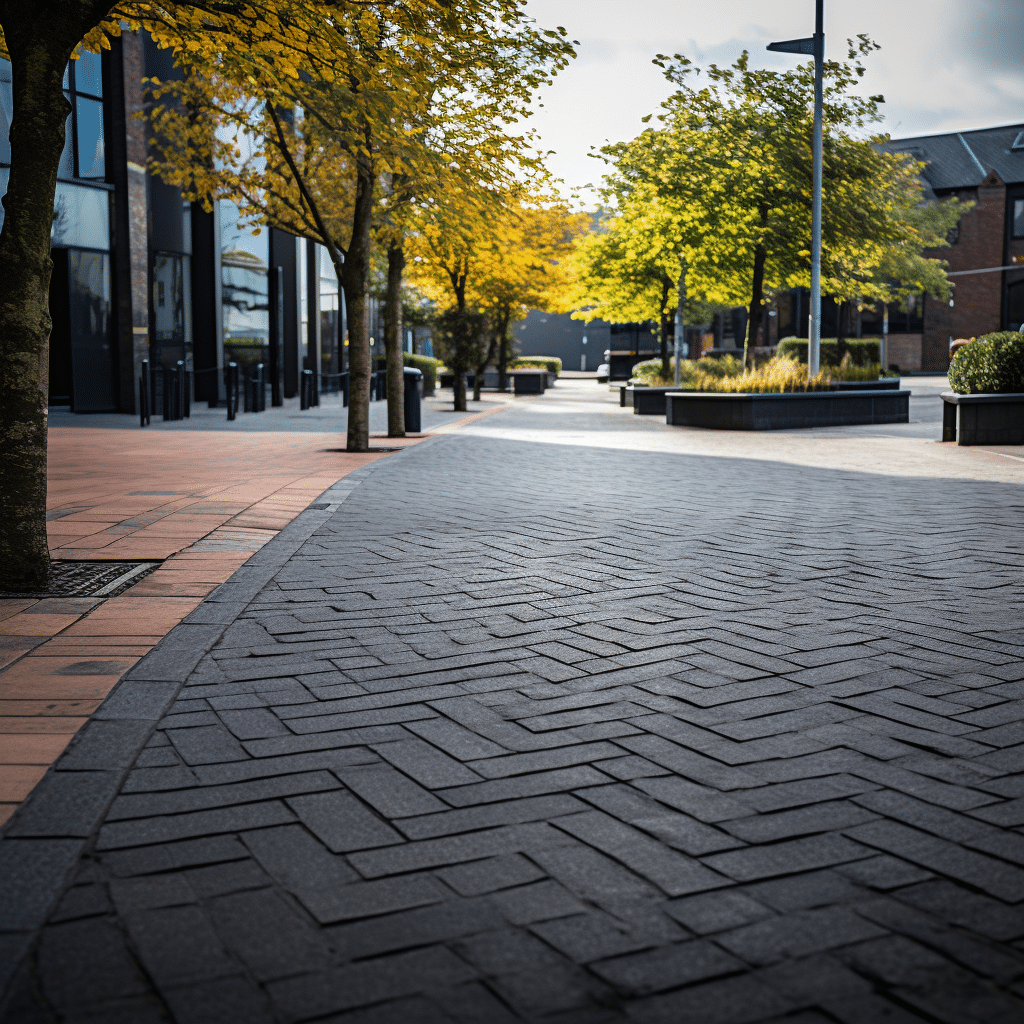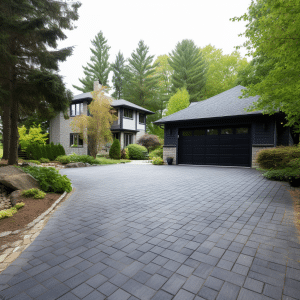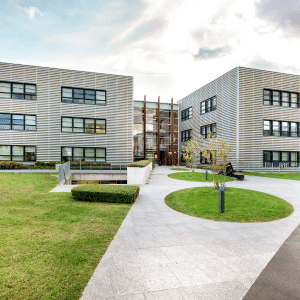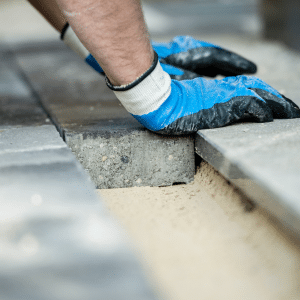PAVING INSTALLATIONS
Our Paving encompasses the paving of a wide range of public spaces, extending to semi-public locations like complexes, holiday resorts, urban centers, neighborhoods, and any area experiencing higher-than-average footfall and vehicular movement.
Choosing the right sized paving options?
Selecting the right sized paving is a pivotal step in transforming your outdoor space. Our comprehensive guide takes you through a range of paving dimensions, helping you make a choice that harmonizes with your project's scale and aesthetics. Whether it's a charming walkway or an expansive patio, we provide insights to ensure your paving aligns seamlessly with your vision.

INDUSTRIAL PAVING
Designed to withstand the rigors of heavy traffic and the substantial loads imposed by large trucks and goods, industrial paving is strategically employed in high-traffic zones. Interlocking pavers take center stage as the preferred choice for this purpose.
Often referred to as "curb appeal," the section of our residences dedicated to paving where vehicles traverse holds significant importance. Driveway pavers offer versatile options for utilization, with the primary function being the creation of pathways used by cars.
Commonly recognized as a paving variant reminiscent of traditional building bricks, brick pavers evoke a distinct architectural charm. These pavers frequently exhibit hues of red or varying shades within the reddish spectrum.
PAVING MATERIAL WE USE
The paving material we employ showcases a careful selection process, ensuring the optimal blend of durability, aesthetics, and functionality.
- Pros: Durable, cost-effective, available in various shapes and sizes, good for high-traffic areas.
- Cons: Limited color and texture options compared to wet cast or natural stone, may require sealing for added protection.
- Pros: Offers a wider range of design options including intricate textures and patterns, more refined appearance compared to dry cast, durability.
- Cons: Can be more expensive, especially for intricate designs, may require sealing for enhanced longevity.
- Pros: Offers unique natural beauty, a wide range of colors and textures, timeless elegance, can increase property value.
- Cons: Generally more expensive than concrete or brick, requires maintenance, some stones are more prone to staining.
- Pros: Classic and timeless appearance, available in a variety of colors, good for traditional or historic settings, can be more environmentally friendly.
- Cons: May not handle heavy loads as well as concrete, can be more expensive than concrete, requires maintenance.
- Pros: Smooth and continuous surface, suitable for high-traffic areas like roads and parking lots, relatively quick installation.
- Cons: Limited design options, can require more maintenance and repair over time, may not be as visually appealing for some applications.
PAVING PRICES
Typically, the cost of paving, encompassing materials, labor, and additional features, falls within the range from R300 per square meter. This pricing variation is influenced by the diverse palette of paving colors, styles, and dimensions available, each contributing to the overall cost.

- Paving bricks From: R120 per square metre
- Labour From: R100 per square metre
- Transport From: Depending on site
- Plates compactor From: R350 per day
- Deep Vibration Roller From: R950.00 per day
- Extra materials needed (eg. cement, Sand, Filling) From: R25.00 - R30.00 per square metre
PAVING LABOUR AND PREP WORK
Paving labor and preparation work are crucial components in ensuring a successful and enduring paving project.
Proper preparation sets the foundation for a smooth and long-lasting paved surface. Here's an overview of what these aspects entail:
- Site Assessment
- Excavation
- Base Installation
- Paver Installation
- Cutting and Shaping
- Compaction
- Joint Filling
Our preparation work consists of: Planning and design, Site Clearing, Grading, Compaction, Base Installation, Edge Restraints and Drainage considerations.

The cost of a paving project can vary based on factors such as the type of paving material chosen, the size of the area to be paved, the complexity of the design or pattern, site preparation requirements, and labor costs. Different materials, such as concrete, natural stone, or brick, come with their own price points and installation considerations.
Selecting the right paving material depends on factors like your budget, desired aesthetics, the level of maintenance you’re comfortable with, and the intended use of the paved area. Concrete pavers offer durability and versatility, natural stone exudes elegance, brick brings a classic touch, and asphalt is great for high-traffic areas like driveways and parking lots.
Proper maintenance is essential for maximizing the lifespan of your paved surface. Regular sweeping and occasional power washing help prevent the buildup of debris and stains. Applying a sealant can protect against moisture and maintain the appearance of the surface. Also, promptly addressing any cracks or uneven areas can prevent further damage.
The duration of a paving project depends on various factors, including the size and complexity of the area, the type of paving material, and weather conditions. Smaller projects like a walkway or patio might take a few days, while larger projects such as a driveway or commercial parking lot could take a week or more. It’s advisable to consult with your chosen paving contractor to get a more accurate estimate based on your specific project details.









